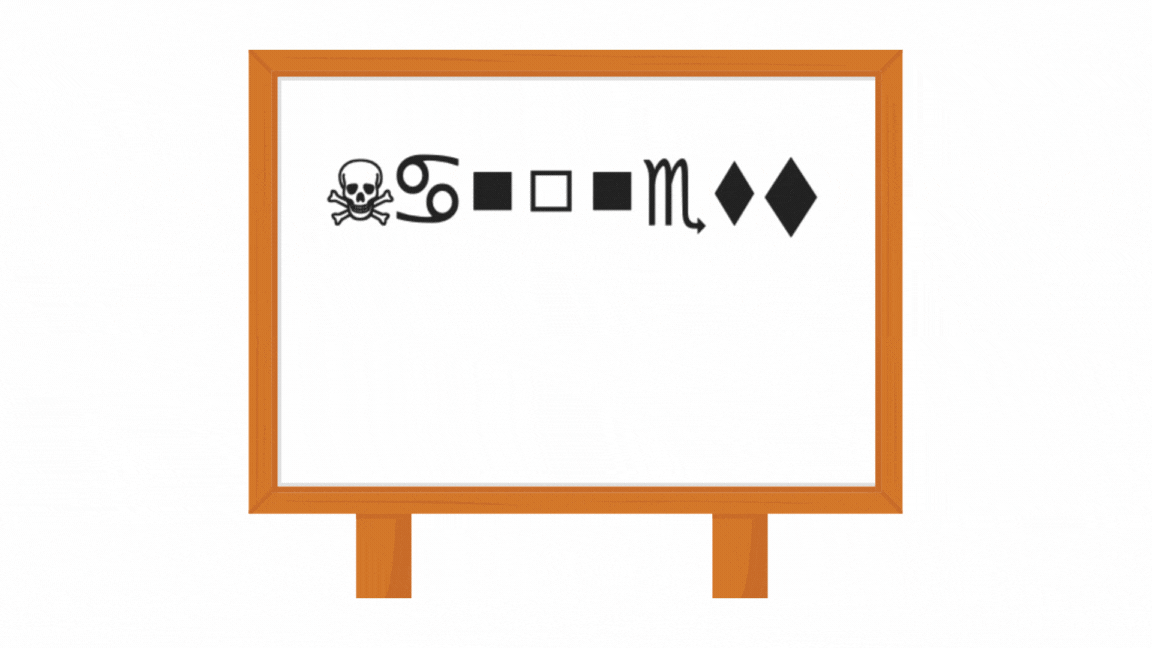
]Google Sheets is go-to resource for organizing your data - especially if you're a fledgling business. Many even use it as a basic CRM or ERP to manage business workflows.
Businesses use Google Sheets to keep track of potential leads, monitor expenses and accounting, and capture support issues among other use cases.
Much of the data added to Google Sheets primarily comes in via emails. Typically someone checks incoming emails daily, copies specific data from them, and pastes it into Google Sheets.
Ever wondered if you could automatically convert emails to relevant Google Sheets entries?
Let's look at how Nanonets can help you set up an automated email parsing workflow that will convert emails to Google Sheets entries.
How to convert email to Google Sheets?
Email parsing with Nanonets
Create an account
Sign up to get started with Nanonets.
Or sign in to your Nanonets account.
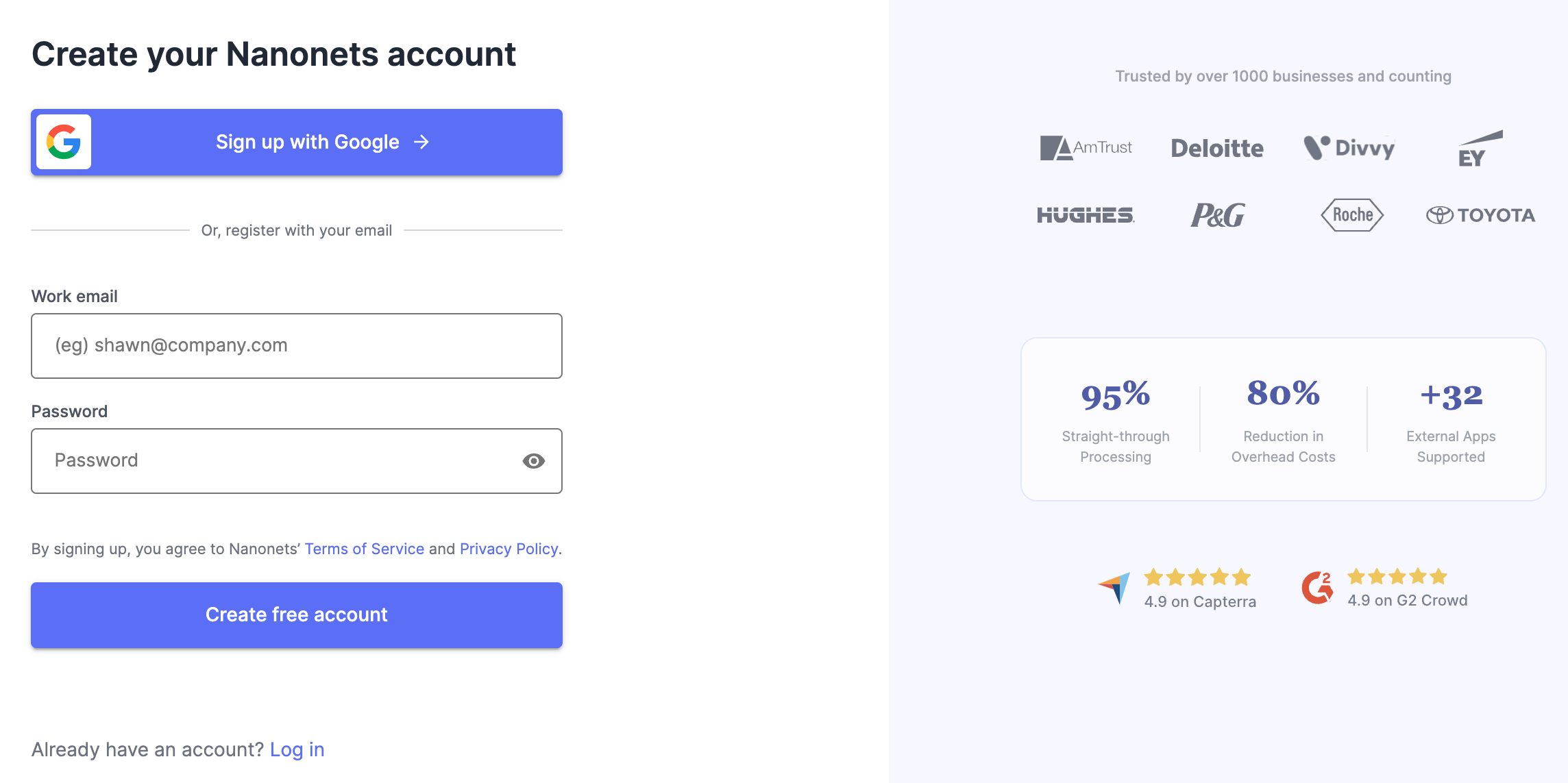
Select a data parser
Depending on the types of emails you want to parse data from, create your own data parser or select one of Nanonets' pre-built data parsers.
A pre-built data parser is an AI that has been trained on thousands of examples of a particular data/document type.
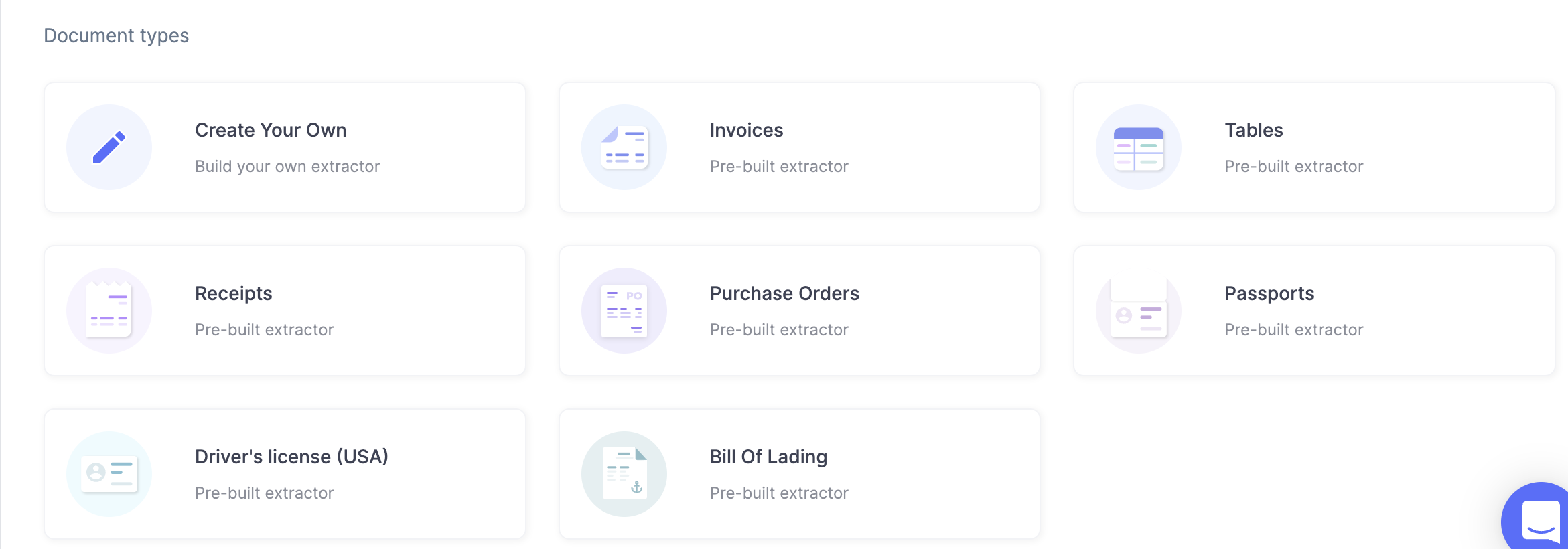
Import your emails
Next, import a few emails into your data parser.
Simply auto-forward your emails to a dedicated Nanonets inbox or receiving address. And Nanonets will then capture all these emails into your data parser.
You could also set up an automatic import of files from cloud storage, databases or connect to other sources via an API.
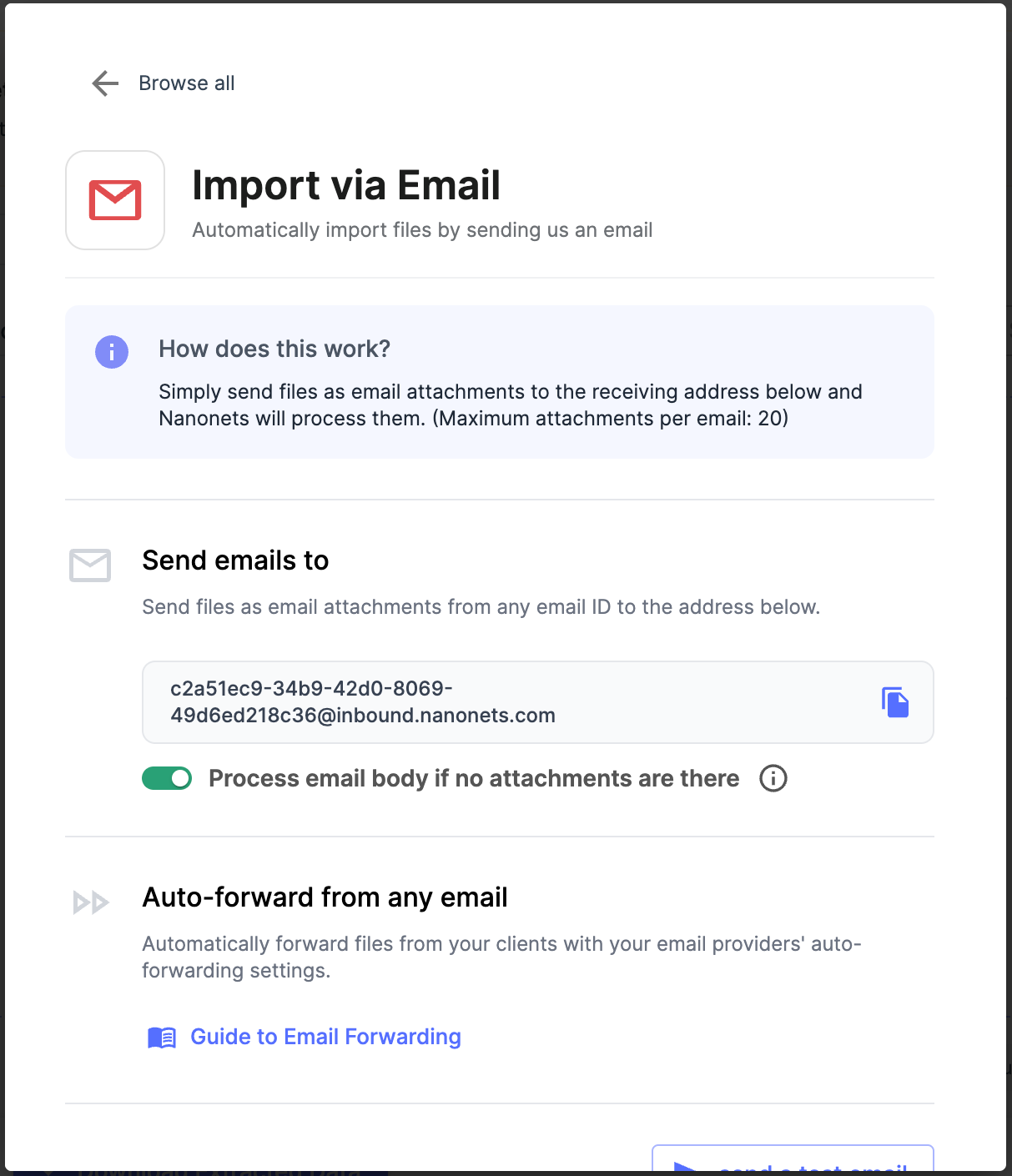
Extract data from your emails
Nanonet's pre-built data parser extracts relevant data from the email body and/or attachment in the forwarded emails.
You can even quickly edit, review or approve the extracted data.

Export or automate workflow
Complete the process by selecting your preferred output format - Google Sheets, Excel or csv (among other options).
You can also automate this entire workflow by specifying data enhancements/transformations, setting up approvals, and sending the final results to any business application of your choice (e.g. Google Drive).
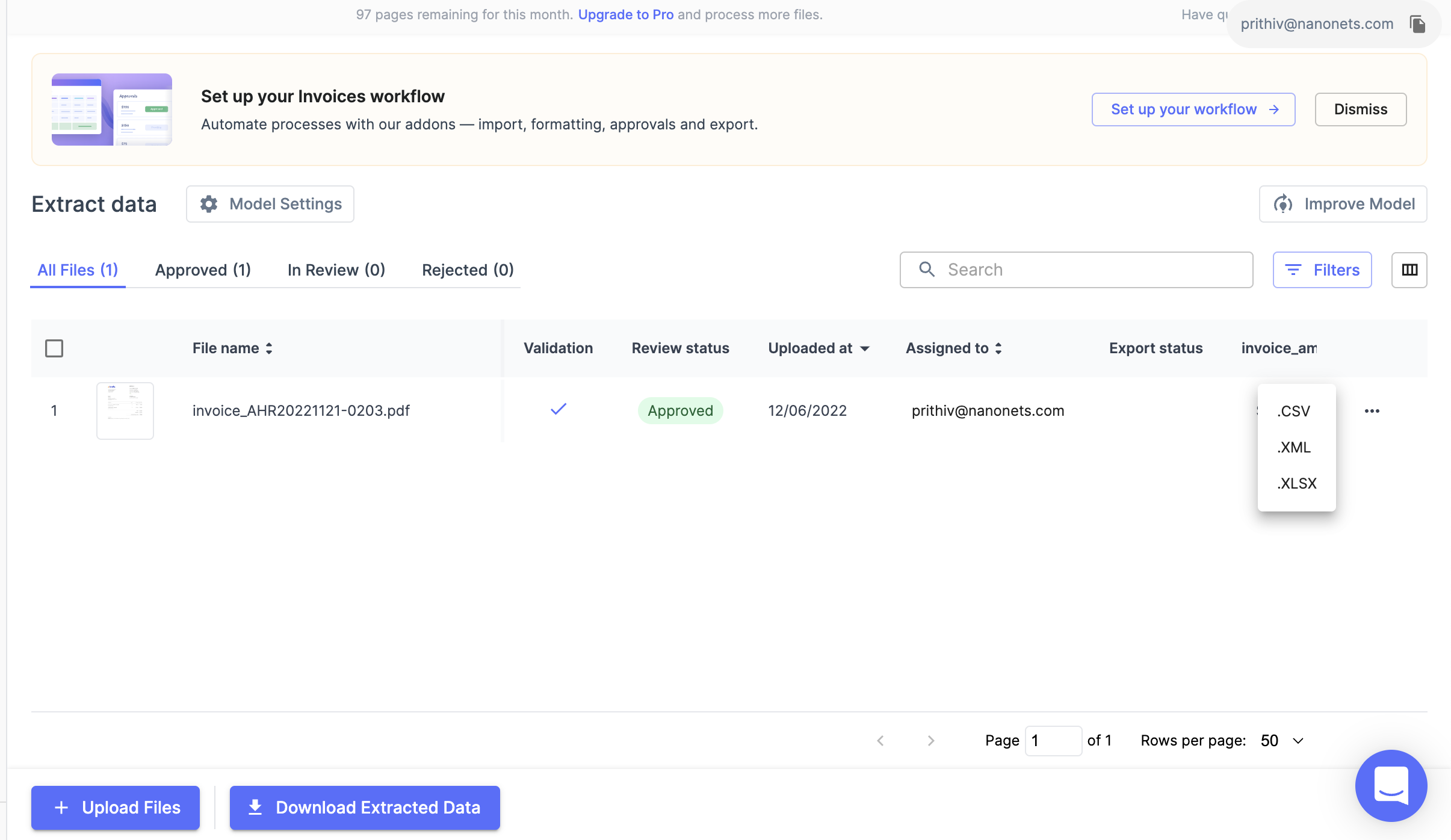
Common Email to Google Sheet Use Cases
Here are some of the most common email to Google Sheet workflows that you could automate for your business:
Capture email leads
Automatically capture vital lead information (contact info, enquiries etc.) from incoming emails and send to Google Sheets – e.g. extracting phone numbers. Nurture your sales pipeline on Google Sheets by turning it into a CRM.
Book-keeping
Capture invoice or receipt data from incoming emails and send to Google Sheets to automate your book-keeping.
Track order fulfilment
Track all order/shipping notifications for your ecommerce operations by maintaining an auto-updated Google Sheets with all the info extracted from incoming emails.
Track job applications
Capture data from emails with job applications and resume and send to Google Sheets. Use Google Sheets as a custom applicant tracking system.
Manage support tickets
Incoming support emails can be classified and sent to Google Sheets. Track status on Google Sheets and even setup automated replies based on the type of support requests.
Parse email attachments
Incoming email attachments can be parsed and data can be updated on Google Sheets - all without ever having to open an email or download an attachment!
Takeaway
Google Sheets can serve as an effective CRM, ERP or business application for many businesses. But not if all your time is spent in copying data to Google Sheets!
Automating manual processes such as copying data from emails to Google Sheets has immense benefits. Businesses can save a ton of time and can then fully leverage advanced capabilities offered by Google Sheets.

